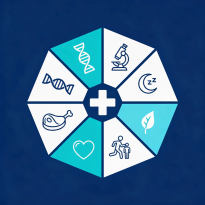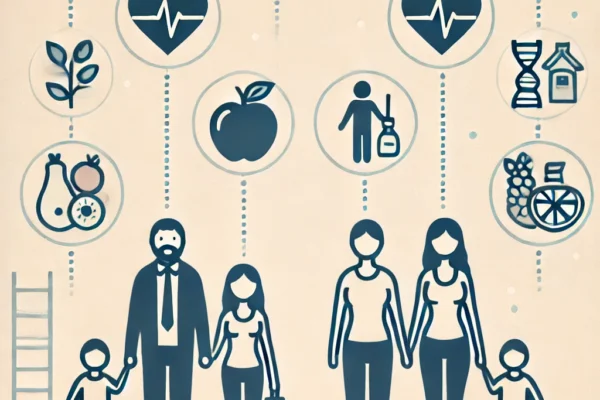7 Surprising Challenges of Herbal Medicine and Acupuncture
Why Do People Struggle with Herbal Medicine and Acupuncture?
Human nature makes it difficult for us to ignore short-term discomfort, even if it leads to long-term benefits. This can be seen in many aspects of life:
- Honest advisors are often ignored by leaders who dislike harsh truths.
- Politicians who propose painful but necessary reforms often lose elections.
- Individuals knowingly consume unhealthy foods despite understanding the risks.
When it comes to illness, the body’s natural response is usually fever and pain:
- Fever: The body raises its temperature to kill infections and expel toxins.
- Pain: A warning signal to limit activity, allowing healing to take place.
However, modern medicine often seeks to suppress these responses rather than work with them. While scientific advancements have been remarkable, there is still much about the body’s self-healing mechanisms that remains unknown.
The Problem with Suppressing Symptoms
Most people instinctively feel that taking painkillers or fever reducers when unnecessary is not ideal. However, due to work responsibilities, social obligations, or short-term convenience, they suppress symptoms instead of allowing the body to heal naturally. Common medical practices that may interfere with natural healing include:
- Taking fever reducers when the body needs to heat up to fight infections.
- Using antibiotics when mild infections could actually help cleanse the body.
- Taking painkillers that block immune responses instead of allowing healing.
Even those who understand these issues may still fall into the habit of suppressing symptoms rather than addressing the root cause.
How Do Herbal Medicine and Acupuncture Differ?
1. They Work with the Body, Not Against It
Taking the common cold as an example:
- Herbal medicine may have fever-reducing and pain-relieving properties, but its primary function is to boost the immune response, helping the body expel pathogens naturally.
- Western medicine often provides stronger immediate symptom relief but may not shorten the overall duration of illness.
Since herbal medicine and acupuncture support natural healing rather than suppressing symptoms, patients may temporarily experience a worsening of fever or pain as part of the healing process.
2. Detoxification Must Begin Before True Healing Happens

In general internal medicine, herbal treatments and acupuncture often show clear effects only after the body starts its cleansing process. This is one reason why some patients feel that results take longer compared to conventional treatments.
7 Key Challenges of Herbal Medicine and Acupuncture
Although Traditional Korean and Chinese Medicine (TKM/TCM) offers many advantages, it also presents unique challenges:
- Patience is Required – Unlike pharmaceutical drugs, which often provide immediate relief, herbal treatments require time to work with the body’s natural cycles.
- Temporary Symptom Worsening – Some patients experience an initial worsening of symptoms before improvement, making it difficult to trust the process.
- Dependence on the Practitioner’s Skill – Effectiveness varies significantly based on the expertise of the practitioner, requiring careful selection.
- Commitment to Treatment – Frequent sessions and consistent intake of herbal remedies are necessary, which may not suit everyone’s schedule.
- Following Dietary and Lifestyle Guidelines – Certain foods and habits can interfere with treatment, making compliance essential for success.
- Cost Considerations – Long-term herbal and acupuncture treatments can be expensive if not covered by insurance.
- Modern Skepticism – Some people dismiss TKM/TCM due to a lack of familiarity or preference for Western medical approaches.
When Does Herbal and Acupuncture Treatment Work Best?
It is common for patients who have tried every other conventional treatment without success to suddenly experience rapid improvement with herbal medicine and acupuncture. This often happens because their body’s natural healing abilities were being blocked by conventional treatments, and once released, recovery progresses quickly. However, for those who don’t see results, the reasons usually fall into three categories:
- Incorrect treatment (Practitioner’s misjudgment or poor diagnosis)
- Insufficient treatment duration (Stopping too early due to impatience)
- Failure to follow guidelines (Patient’s non-compliance with dietary or lifestyle instructions)
Final Thoughts: Balance Patience and Understanding
When dealing with illness, it is crucial to ask why symptoms arise and focus on long-term healing rather than just short-term relief. While modern medicine is invaluable, integrating holistic treatments like herbal medicine and acupuncture can provide a more balanced approach to health. Taking the time to reflect on the root causes of illness and maintaining patience throughout treatment can lead to long-lasting improvements in overall well-being.
For the original Korean text, visit here. If you’re curious about the basics of traditional Korean medicine and health, read the following article:
What Your Sleeping Position Says About Your Health
Learn Why Studying JangSang Medicine is Important.
Frequently Asked but Silly Questions (Foods Good for the Liver??) Why Full, Thick Hair Is Considered Beautiful: The Fascinating Reasons Behind It (Hair Loss Story #1)

